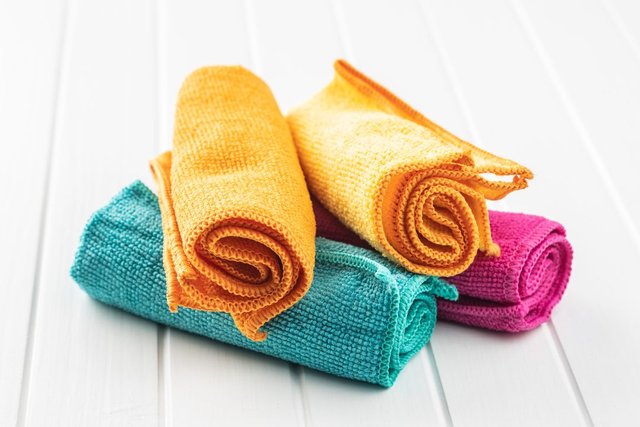Introduction:
Kitchen towels are essential tools in any kitchen, helping us clean up spills, dry dishes, and maintain hygiene. However, improper storage of these towels can lead to issues like mildew growth, unpleasant odors, and even health hazards. Mildew, a type of mold, thrives in damp and humid environments, making kitchen towels susceptible to its growth if not stored correctly. In this guide, we will explore effective methods to properly store kitchen towels, ensuring they remain fresh, clean, and free from mildew.
1. Understanding Mildew and Its Risks:
Before delving into storage techniques, it's crucial to understand what mildew is and the potential risks it poses. Mildew is a type of fungus that develops in moist and warm conditions, often appearing as small black spots on fabric surfaces. When kitchen towels are exposed to moisture and are not adequately dried or stored, mildew can grow, leading to health concerns and unpleasant odors. Mildew can trigger allergies, respiratory issues, and cause stains that may become permanent if not addressed promptly. To prevent mildew growth, it's essential to absorb lumen efficiently by following proper drying and storage practices for kitchen towels.

2. Washing and Drying Kitchen Towels Properly:
One of the primary steps in preventing mildew growth is to ensure that kitchen towels are thoroughly washed and dried after each use. When washing kitchen towels, use hot water and an appropriate detergent to eliminate bacteria and germs effectively. Avoid using fabric softeners as they can reduce the towel's absorbency.
After washing, it's essential to dry the kitchen towels completely. Hang them outside under direct sunlight whenever possible, as sunlight acts as a natural disinfectant and helps kill any remaining bacteria. If outdoor drying is not feasible, use a dryer on high heat to ensure the towels are completely dry before storing them.
3. Choose the Right Storage Location:
Selecting the proper storage location for kitchen towels plays a significant role in preventing mildew growth. Avoid storing damp or wet towels in closed cabinets or drawers, as these conditions create a breeding ground for mildew. Instead, opt for a well-ventilated area with adequate airflow, such as an open shelf or a towel rack.
4. Keep Kitchen Towels Separate from Other Items:
To reduce the risk of mildew contamination, it's essential to keep kitchen towels separate from other items, especially those that might be damp or prone to mildew growth. Avoid storing kitchen towels alongside cleaning sponges, damp cloths, or aprons that may carry moisture.
5. Utilize Hooks and Towel Bars:
Using hooks or towel bars is an effective way to store kitchen towels properly. Hang the towels individually to allow proper air circulation around each towel, preventing them from becoming musty or developing mildew. Hooks and bars also keep the towels off the kitchen countertop, preventing potential contamination from food spills or liquids.
6. Regularly Wash and Replace Kitchen Towels:
No matter how carefully you store your kitchen towels, it's essential to maintain a regular washing and replacement routine. Wash kitchen towels at least once a week, even if they appear clean, to eliminate any bacteria that may be present. Additionally, inspect towels regularly for signs of wear, tear, or persistent stains that may resist cleaning. Replace towels that are excessively worn or damaged to ensure your kitchen stays hygienic.
Conclusion:
Properly storing kitchen towels is a crucial aspect of maintaining a clean and healthy kitchen environment. By following these tips and guidelines, you can prevent mildew growth and prolong the lifespan of your kitchen towels. Remember to wash and dry the towels thoroughly after each use, choose the right storage location, and keep them separate from other items prone to moisture. With the right approach, you can enjoy fresh, odor-free, and mildew-free kitchen towels, enhancing the overall cleanliness and efficiency of your kitchen space.